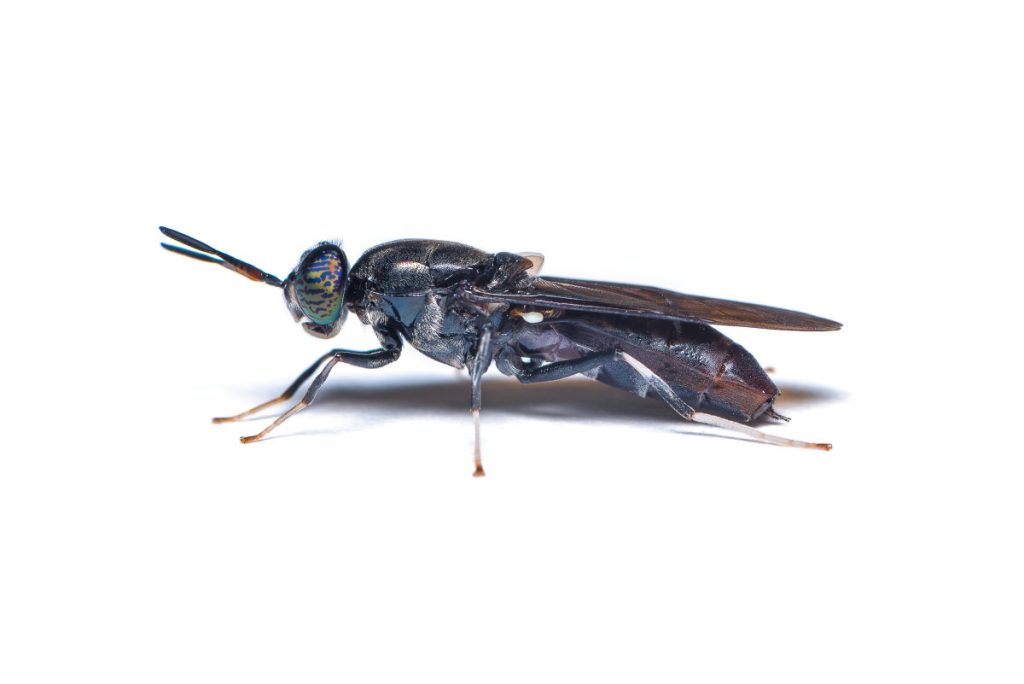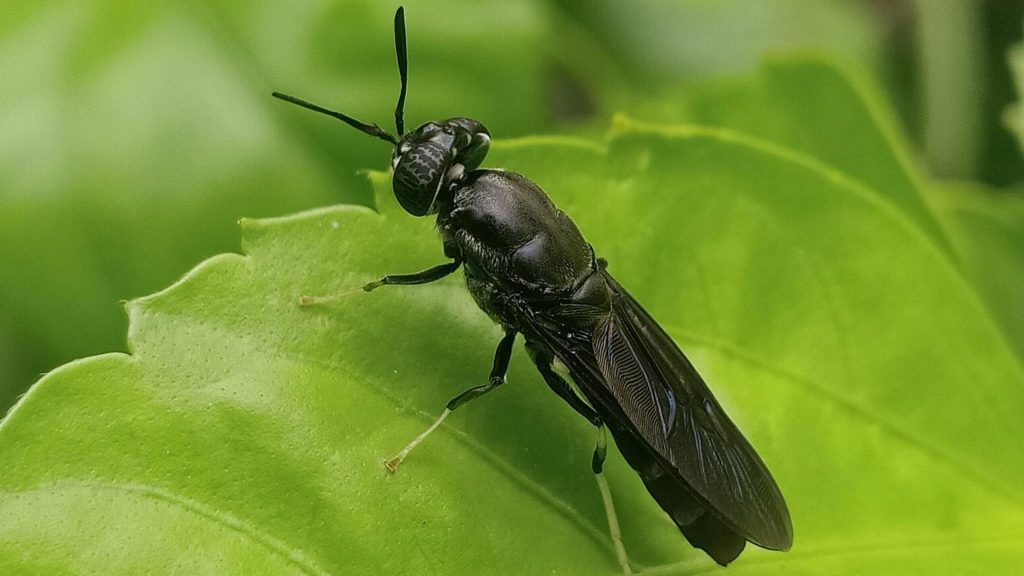Using flies to create food protein. The protagonist of this article is the Black Soldier fly. You probably haven’t heard about it yet, being a relatively recent discovery, but you’ll learn some interesting details as you read these lines.
This insect is native to the American continent, but has now become acclimatized on all continents. Females lay their eggs in plant substrates and decomposing animals. The larvae of these flies develop by consuming vegetable or animal waste, explaining their use for bioconversion but also why they are a host for composts. Even if it is an exogenous species, the European Union does not consider this species invasive, the adult being harmless to humans, and the larvae are useful for waste management and recovery.
Females are capable of laying up to 500 eggs at a time. The larvae, although they are 1mm when hatching, reach up to 25mm and weigh 3g. They feed on a wide variety of organic matter, having a diet that easily adapts to their environment. Once mature, the black soldier fly has a life span of 50 to 70 days, if it has enough resources for survival.

The benefits that this fly has are numerous, but the most important are those mentioned below, such as:
- Due to the large size of the larvae, other fly species are prevented from laying eggs in other organic matter, as the black soldier fly larvae will consume them.
- They are not harmful to humans, because they have a much reduced spongy mouthparts, so they can only consume liquids or flower nectar. They don’t regurgitate food, so they don’t spread disease like other fly species.
- Does not fly as much as regular flies. They have less energy as adults, making them easy to catch and relocate. They don’t bite or squeal, their only defense being..hiding.
- After they were first used in agriculture and animal husbandry, tests showed significant reductions in E. Coli bacteria in manure.
- Reduce polluting factors in manure in a very short time.
- Significantly reduce the volume and weight of organic waste. The larval colony breaks up the food, kneads it and creates heat, increasing the rate of compost evaporation. Also, significant amounts of compost are converted into carbon dioxide breathed by larvae and other microorganisms. The larvae of this species of fly reduce the volume of compost by about 50%.

But now we come to the interesting part, namely the use of these larvae in human consumption.
They are a very important source of protein. They don’t create it themselves, but through the nutrients they consume. The protein content of larvae can reach up to 40%, being also rich in calcium and other nutrients. They can be used to create flour, so are perfect for those looking to get protein from more ethical sources than regular farming.
The benefits to people are:
- The fact that they are full of energy. The larvae do nothing but eat, eat and eat. They can eat up to 2 times their weight in order to grow as fast as possible. Once they reach adulthood, they lose their ability to feed, so they live long enough to breed again.
- They are a clean source of food, being easy to maintain. They kill all bacteria in food and their waste is sanitary.
- They reproduce very quickly. Compared to other domestic animals, they lay up to 500 eggs, even though their life cycle is much shorter. But the production of nutrients is much higher.
- They are very easy to harvest even at home, there are various devices or complete farms created for the cultivation of this species.
- Solves the problem created by food waste. Black soldier fly larvae can be fed on anything, including grain waste from a brewery or waste from ethanol production.
Although they are treated as something “disgusting” for consumption and given no importance, they are already cultivated on a large scale for animal and human consumption. They are easy for us to grow as well, always providing us with a source of food. They are clean, full of protein, and considered among the best insects to eat.

